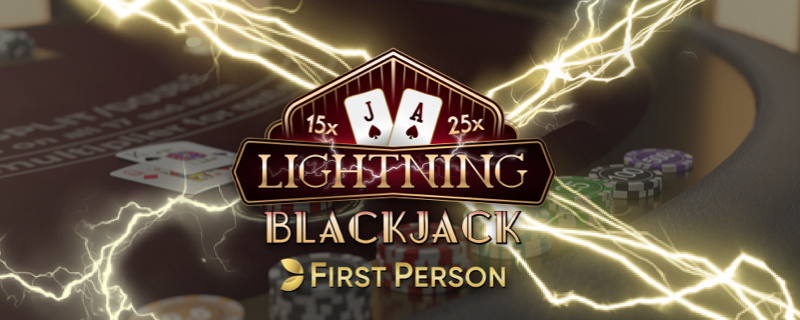Being a resident of Jacksonville, Florida has its advantages. Northeast Florida is a beautiful, temperate area known for its world-class golf and miles of sandy beaches. It’s not swarming with tourists and the elderly transplants (“snowbirds”, as they’re called by the natives) like other parts of the state, yet it still retains a laid-back vibe that is unmistakably Floridian.
Jacksonville is a sports-crazed town, and college football has long been king of the area. The University of Florida is just 70 miles down Highway 301, making Jacksonville a Gator hotbed– there are indisputably more Gator fans in Jacksonville than in any city in the world, and they’re joined by plenty of Seminoles (Florida St.) and Bulldogs (Georgia) as well. Every year around Halloween, Florida and Georgia meet in Jacksonville for a rivalry affectionately known as The World’s Largest Outdoor Cocktail Party. Not only does this game sell out on a yearly basis, but temporary stands are always erected inside 67,246-seat EverBank Field to accommodate as many fans as possible. Along with The Players Championship, a professional golf tournament commonly known as the “5th major”, the Florida/Georgia game is the biggest social event of the year in Jacksonville. That elicits snickers from some other places– places like Miami and Orlando where more “important” things than sports take center stage– but that’s just fine with most Jacksonville residents.
One thing that Jacksonville has definitely not had in recent years is a competent professional football team. The Jaguars have not made the playoffs since 2007 and they’re currently in the midst of a historically bad run. Every home game sees EverBank Field blighted by tarps that cover up large swaths of seats in the upper deck– seats that would otherwise be empty, an embarrassing eyesore seen on televisions across the world. That’s why the tarps are used, after all– to minimize embarrassment. Some local fans will indignantly huff about how the stadium is too big for the city and the tarps are therefore a necessity, but they ignore the fact that the stadium was always full– sans tarps, mind you– when the team was a contender fifteen years ago. Those days are long gone though, and the Jags are currently the NFL’s most inept franchise. That’s right– THE MOST inept, surpassing Oakland, Detroit, Cleveland, and whoever else you want to name. If you don’t believe that last statement to be true– if you’re thinking of rebuttals and trying to list the ways that other franchises are worse– then you just haven’t caught on yet. There are millions of NFL people, both knowledgeable and otherwise, who haven’t fully caught on, which has enabled the enlightened NFL bettor to make an absolute killing betting against the Jags.
By now, most sports bettors have a rudimentary understanding of how lines– “point spreads”– are set. Oddsmakers attempt to gauge public perception of two teams and they set a number accordingly, with that number often changing based on the volume of bets and/or the amount of money coming in on one side or the other. The key here is the “public perception” part– oddsmakers don’t make their decisions based on the actual quality of the teams, but on the public’s perception of the quality of the teams. This is an important distinction and it’s why some teams can be winning bets– or losing bets– for years on end. The market doesn’t always correct itself, so to speak, because the teams are always measured not by their actual worth, but by the perception of their worth, and perception, especially the large-scale variety, can be a tricky thing that is difficult to change.
Let’s take the Pittsburgh Steelers, for example. The Steelers are emblematic of NFL excellence– they’ve won more Super Bowls (6) and AFC Championship games (8) than any team in the league. NFL fans of all ages have grown up around good Pittsburgh teams, but that is especially true of fans who were born in the ’60s or earlier. Those folks witnessed the Steel Curtain teams that won four Super Bowls in a 6-year span (1974-1979) and they’ve seen every Pittsburgh team since. The result has been an almost unconscious belief in the inherent worth and quality of the Pittsburgh Steelers football team, an ingrained bias that stretches across generations. Football fans see the Steelers logo and subconsciously conjure up images of winning and success. This might sound like overreaching psycho-babble to you, but the proof is in the pudding: since Mike Tomlin took over as coach of the Steelers seven years ago the team is 33 games over .500 (79-46), yet they have a losing record against the spread. A really good team, a team that wins 33 games more than it has lost over the past seven-and-a-half years, has been a losing bet. Why is that? It’s because lines are set based on perception, not reality, and the perception of the Pittsburgh Steelers has become distorted over time. This distortion is so pervasive and widespread that it affects nearly every NFL bettor, and it should be taken into account anytime one bets a game involving the Steelers. There are other franchises this affects, as well– after the Dallas Cowboys dominated the ’90s the term “Cowboys Tax” was often used to describe the 1 or 2-point adjustment that needed to be made in games involving the Cowboys; this adjustment was required because of the widespread perception of Dallas as a great team. People love to back a winner.
Which brings us back to the Jaguars, who are most definitely not a winner but are a great example of a team whose perception has not matched its reality for quite awhile. It’s not that the casual NFL bettor “perceives” Jacksonville as a winning team, certainly not. Most people’s instant analysis of the team would probably fall somewhere between “loser” and “laughingstock”. However, the Jags have undeniably been overrated and overvalued by the vast majority of NFL bettors for several years now, and it continues to this day. Just look at the evidence:
The team has now been an underdog in 33 consecutive games (this week makes 34). Over their last 26 games they’re 6-20 against the spread, which is the worst ‘ATS’ mark in the league over that span. That’s right, despite being underdogs in EVERY GAME the Jags have covered just 6 times in their last 26 games. If a bettor strictly bet against the Jaguars every week for the past two years, making no other bets, he would be on a run unmatched by handicappers worldwide. And yet, as we mentioned, the “run” is not only continuing, it’s showing little signs of slowing down.
Prior to this season NFL “experts” were nearly unanimous in their proclamations that the Jags were going to be better this year than they were last season. It seemed to be a safe assumption, after all, since the Jags were so bad in 2013, winning only 4 of 16 games and going 5-11 against the spread. Through five weeks, though, it’s becoming clear that the experts were wrong: the Jags are 0-5, they haven’t covered in a single game despite being an underdog of 5 points or more every week (and a double-digit ‘dog twice), and they’re last in the league in point differential by a wide margin. This is, by any objective measure, the worst team in football.
And yet, many people still don’t see it that way. The perception does not match the reality. This is validated every day by perusing my Twitter feed, watching the talking heads on television, and observing the betting patterns on BETDAQ and out in Vegas. Just yesterday, for example, I stumbled upon some “power rankings”– those ubiquitous yet meaningless lists that always tell you more about the person doing the rankings than the teams themselves– and found that the Jaguars were ranked 30th, ahead of both Tennessee and Oakland. The fact that they were ranked ahead of Tennessee is especially galling when you consider that the Titans won in Week 1, nearly won last week, and are 6-point favorites over Jacksonville this week despite uncertainty surrounding the health of their starting quarterback. But even ranking the Jags ahead of Oakland can’t be supported by any hard evidence; just look at what the two teams have done this season: the Raiders have lost road games to the Jets and Patriots by 12 combined points, covering in both games (assuming you got them at +5.5 in Week 1). The Jaguars, meanwhile, lost their first four games by 17, 31, 27, and 19 points before losing 17-9 to Pittsburgh last week. They haven’t covered in a single game, and their minus-102 point differential is nearly twice as bad as Oakland’s mark of -52.
So why, then, are people viewing them as “just another bad team” instead of as the historically bad train wreck that they are? Why haven’t people realized that they haven’t only been worse than teams like Tennessee and Oakland this season, but much worse? And it’s not just one guy, either– there are many “power rankings” that do not list Jacksonville on the bottom, and I after I questioned the author of one of them yesterday I received a rebuttal from the site’s administrator, someone whose opinion I respect. He was basically in agreement with the rankings and said something to the effect of Jacksonville being “due” to win one sooner or later (“they’ll win one of these weeks” is what I think he actually said). And that is surely true, they will win one of these weeks, just as they won a few times last season. However, it struck me that this type of thinking– “they’re not that bad”, “they’re due for a win”, etc.–is precisely why a bet against the Jaguars continues to be the safest, most logical bet this side of Coca-Cola.
The concept of “due” is a very dangerous one for sports bettors, especially when it’s not grounded in anything other than “one thing has happened for awhile, so the other thing is bound to happen soon.” It just doesn’t always work out that way in sports and that’s especially true when you’re dealing with historic greatness or historic ineptitude. The 2007 New England Patriots are probably the most recent example of a team that pretty much anybody would concede was historically great; the Patriots didn’t lose in the regular season and went 11-5 against the spread. If you had approached every week of that season thinking that the Patriots were “due” to lose because it hadn’t happened in awhile, you’d have burned through a lot of money before they finally did lose in the Super Bowl. Likewise, if you approach Jacksonville today with the mindset of “they’re due to win one of these weeks,” you may find yourself a good deal poorer in a few months, assuming you back up your opinions with cold, hard cash.
For oddsmakers, perception is reality. For bettors, though, it’s vital to know the difference if we’re to survive with our bankrolls intact.







